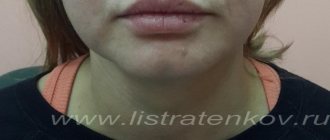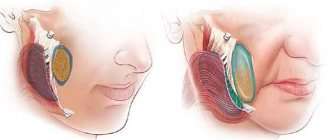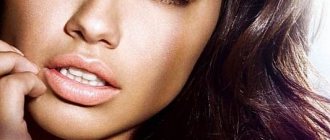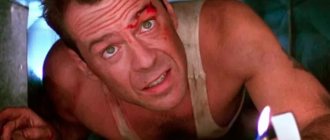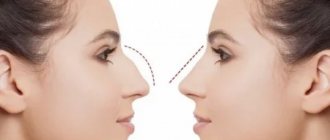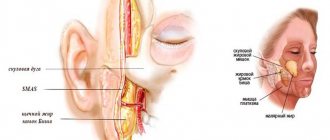- Removing Bisha's lumps
- Thread face lift
- Correction of lower jaw angles
Removal of Marie Bisha lumps, or bischectomy, is a surgical procedure to eliminate fat deposits between the cheekbones and lower jaw. Thanks to the operation, facial features become more subtle and expressive. The fashion for an aristocratic appearance with prominent cheekbones and sunken cheeks has made bischectomy very popular. The procedure is used by men and women of different ages who consider Bisha's lumps a disadvantage and want to improve the aesthetics of their face.
What are Bisha's lumps
These are encapsulated accumulations of fatty tissue that every person has. Formations that are dense to the touch are formed in infancy and have different shapes and sizes. Fat capsules perform several functions:
- protect facial nerves and muscles from injury;
- make breastfeeding easier for babies;
- in childhood, they make chewing food easier.
As the facial skeleton and muscles become stronger, Bish's lumps lose their functionality, so their removal does not harm the body.
Functions of the cheek fat pad
The main functions of Bisha's lumps are:
- Reduces negative sucking pressure in infants, which improves breastfeeding efficiency. It is believed that this role is the most important, since the fatty bodies of the cheeks are most pronounced in early childhood and undergo quite pronounced involution (reverse development) as a person grows older.
- Facilitation of gliding of masticatory muscles due to the formation of a lubricant that reduces friction.
It is believed that Bisha's lumps provide a shock-absorbing function, protecting neurovascular bundles during injury. In addition, these formations separate the muscles from each other and from neighboring bone structures.
Basic removal methods
Bichectomy is performed in the classical way - using a surgical scalpel - or using laser equipment. The surgical intervention takes place under local or general anesthesia. In the classical method, a miniature scalpel is used to make 1-2 cm long incisions on the inside of the cheek, at the level of the 6th molar. This way the surgeon gains access to the fat capsules. The volume of tissue removed depends on the anatomical structure of the face and the size of Bisha's lumps.
At the second stage, the doctor removes fat deposits using a special tool, and closes the incisions with a cosmetic suture using biosoluble threads. The patient is guaranteed no scars on the face, since all manipulations are performed on the inside of the cheeks. At the final stage, the sutures are closed with an antiseptic pad, and the operation area is fixed from the outside with an elastic bandage.
Removing Bisha's lumps in the process
Removing Bish's lumps. Work of Dr. Amjad Al-Yousef
Laser removal of Bisha's lumps resembles the classical technique, but takes less time. Instead of a scalpel, a directed laser beam is used. The main advantages of this method are low trauma and a shorter rehabilitation period. Laser radiation causes less tissue damage and coagulates blood vessels, which significantly reduces the risk of bleeding during and after surgery. The disadvantages of the procedure include a higher price. In addition, it requires expensive equipment, which not all clinics have.
Preparation for the procedure
First, the doctor examines the patient’s medical history and prescribes laboratory and instrumental tests. These include ECG, fluorography, general urine test, blood test for coagulation and the presence of infections such as hepatitis B and C, HIV and syphilis. A few days before bischectomy, patients need to stop smoking, drinking alcohol and certain medications.
How much does plastic surgery cost to remove lumps Marie Bisha
The price depends on the qualifications of the surgeon, the surgical technique and the type of equipment used. When calculating the final amount, the complexity of the procedure is taken into account: the volume of fat capsules, skin turgor and the general health of the patient. The type of anesthesia (local or general) and the length of hospital stay matters. The price will be higher if other manipulations are carried out simultaneously with the removal of Bisha's lumps, for example, cheekbone modeling or ultrasound lifting.
Surgery: pros and cons
Those who have successfully removed Bisha's lumps or are considering this option for facial correction are on the side of the defense. Their arguments in favor of the operation:
- A quick and painless intervention for the formation of a clear oval face, skin tightening and rejuvenation.
- Long-term effect – up to 5 years, provided that weight is maintained.
- Better and more predictable results compared to other fat removal methods (eg liposuction).
- No scars on the skin.
In addition, there are always before your eyes examples of stars who have used such a service from plastic surgeons. These are Polina Gagarina, Angelina Jolie, Jennifer Aniston, Natalie Portman, Victoria Beckham and others.
Opponents of the operation also have many arguments:
- Unnatural thinness of the face after surgery.
- Risk of surgeon error and damage to nerves and blood vessels.
- Incomplete removal of lumps and associated facial asymmetry.
- Possibility of re-accumulation of fat.
- Adverse effects of anesthesia.
To avoid such mistakes and complications, it is important to choose a reputable institution and an experienced surgeon with appropriate qualifications.
Result of the procedure
The first changes are observed 2-3 weeks after bishectomy.
By this time, the swelling will go away and the patient will see his new forms. The final effect can be assessed six months later, when the sutures have finally healed and the tissues have adapted to the new condition. As a result of the operation, the following changes occur:
- the volume of the middle and lower third of the face decreases;
- cheekbones and chin acquire clear contours;
- nasolabial folds are smoothed;
- facial features become more refined and proportional.
The effect largely depends on the professionalism of the surgeon, anatomical features and lifestyle of the patient. Compliance with medical recommendations before and after the procedure will help to avoid complications and consolidate the result.
Tips for the rehabilitation period
After surgery, patients are advised to reduce the load on the affected area for 10-14 days: brush your teeth carefully, avoid too hard, cold and hot foods. To prevent swelling, you need to sleep on your back and use a high pillow. You should limit physical activity, avoid sunbathing, visiting the sauna, bathhouse and solarium.
Advantages of contacting Listratenkov K.V.
You can remove Bisha's lumps in Moscow by contacting Dr. Listratenkov K.V. He carries out all surgical interventions himself. On the website you can clearly see the result after removing Bisha's lumps (before and after). The main principle of work is a trusting relationship between the doctor and patients.
Additionally, free consultations from a surgeon are provided: you can visit the website by providing contact information. In the near future, Kirill Viktorovich will give a detailed answer to this.
Positive patient reviews confirm the safety of surgery to remove Bisha's lumps (before and after photos are presented on the website). The Center for Aesthetic and Laser Medicine has been operating for more than 15 years. During this time, we managed to make several thousand patients happy. The working hours are convenient: the doctor sees from 10:00 to 20:00 from Monday to Saturday, which is suitable even for people with an irregular work schedule.
To make an initial appointment, just contact the administrator at the specified number or leave a request online, leaving contact information, the expected date and time of the appointment.
Indications and contraindications for surgery
The operation to remove Bisha's lumps is aesthetic in nature. Fat capsules do not cause physiological discomfort and are harmless to health, so it is incorrect to talk about medical indications in this case. Experts recommend the procedure for pronounced cosmetic imperfections:
- disproportionately massive lower part of the face;
- protrusion of fat deposits due to weakness of ligaments and facial muscles;
- excess fat in the cheek area.
Bichectomy is often combined with other plastic surgery methods. The procedure can be carried out simultaneously with a circular lift or lipofilling - facial modeling using the patient’s own fat tissue.
Bichectomy is considered a relatively safe operation, but still has some contraindications. Surgery is prohibited for pathologies such as:
- diabetes;
- malignant neoplasms;
- bleeding disorders;
- mental illness;
- hypertension in the stage of decompensation.
There are also temporary contraindications to the procedure. These include pregnancy and lactation, inflammatory processes in the oral cavity, acute respiratory diseases, deviation of body weight from the norm by more than 25%.
Age restrictions
Surgeons do not recommend bischectomy for patients under 25 years of age. By this age, the formation of the facial structure is completed and the volume of fat deposits is stabilized. In some people, Bisha's lumps shrink so much that they become invisible, and there is no need for surgery. If you ignore the opinion of doctors and undergo plastic surgery at a young age, you can get a negative effect: sunken cheeks and a gaunt face.
The decision to operate is made by the surgeon
Patients can do the test themselves and determine the thickness of the cheeks, but the final decision should be up to the surgeon. During the consultation, the surgeon will do his tests and determine whether there are indications, whether this will only give an improvement in the long term and whether it will lead to exposure of the bone structures.
In this regard, the specialist needs to find out many points - how the patient is doing with his weight, what the dynamics are, whether there was weight gain during pregnancy, etc. To do this, the surgeon will collect anamnesis, collect all the information, and determine whether there are indications for surgery. There are many factors that can influence future results.
Well, the most important thing, of course, is in appearance. If the patient has a round face type, if there is a tendency to gain weight, then this operation can be very helpful in the future and immediately after the operation a positive effect will be visible - a decrease in the volume of the cheeks.
By the way, general anesthesia is not necessary; this operation can be done under local anesthesia. The operation lasts differently in different situations, but on average it takes about 40 minutes.
But this is not a lunch break operation - come and do it. You need to prepare - get examined, determine the state of the blood coagulation system, and some other tests need to be done.
Recovery after surgery
After the operation, as a rule, there are no marks, no bruises, and the next day you can go to work.
The only restriction that I tell my patients is that they cannot eat solid food. For three days the patient eats everything pureed. Because the swelling lasts for three days, although the patient himself will not see this swelling, since this swelling will look like the condition that was before the operation.
But from 3-4 days the swelling begins to go away, and the patient sees how the cheeks are lifted and how the cheekbones are contoured. The effect becomes noticeable from 3-4 days. And for the first 3 days, the patient should exclude solid food and not brush his teeth in the area of the scar - there will be an incision from 6-8 mm to 1 cm, and 2-3 sutures, which will dissolve without a trace after 7-8 days.
Olga Fem: So the recovery period is very fast, a person can go to work the next day, and no one will notice that he had surgery, his face will simply gradually become more sculpted?
Denishchuk P.A.: More fit, more expressive.
Increase in cheek volume
Olga Fem: To sum it up, it turns out that people with a round face, who are prone to fullness and sagging tissues, as a rule, get a good effect after such an operation.
And if the patient has a thin face, prone to drying out, then you should think carefully before removing Bisha’s lumps, because after 40 they may not be glad that they had such an operation.
Denishchuk P.A.: If such a situation happens, there is nothing complicated about it. Many patients come and I, on the contrary, create these cheeks for them with their own fat.
I take belly fat and smooth out some areas, especially in the cheekbone area, sometimes sunken cheeks. There are patients who, on the contrary, want to increase the volume of their cheeks. That is, it’s kind of like the opposite situation. And this problem is being solved.
Even if someone mistakenly removed these lumps in his youth, and after some time he saw that he no longer liked the result, then in this regard there are no big problems either - this is corrected using one’s own fat bodies. The cheek area is modeled, the cheekbone area, nasolabial wrinkles are modeled, and the contour along the lower jaw is modeled.
Unfortunately, even thin people have sagging tissue, but this can be corrected. And we are not yet considering the possibility of serious surgical interventions. Simply using volumetric methods, in particular Radiesse, hyaluronic acid preparations and your own fat cells. All this is absolutely normal and can be corrected.
